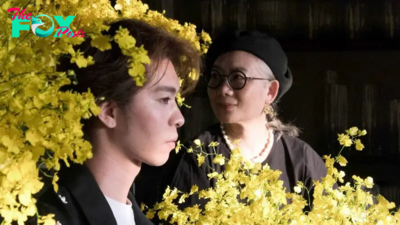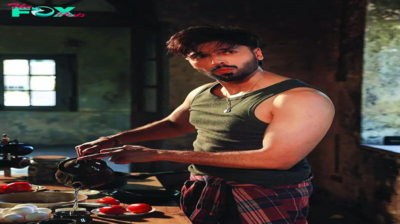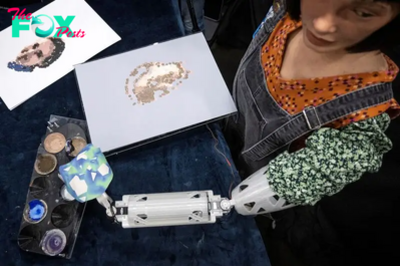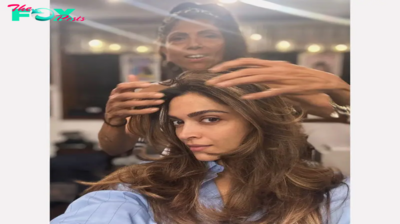Lifestyle
Objection Overruled: Courtroom Puts a Playful Twist on Legal Formality
Bar wizards SAAN DHAKAL and RANJEET KHATRI tap into the measured chaos of legal proceedings for their latest project, Courtroom.
Whether you’re flipping through Lifestyle magazines in your clubhouse, studying the endless online best-of lists while planning for your next Friday- night adventure, or simply taking a stroll through Soho on your way to a long- anticipated restaurant reservation, it’s easy to see that Hong Kong boasts one of Asia’s most vibrant bar scenes. From casual neighbourhood watering holes and bustling happy-hour hangouts to luxurious hotel bars and international award-winning concepts, we’re spoilt for choice.
On the other side of the bar, though, it’s not as straightforward. Sure, the long queues and full houses are rewarding to mixologists and bar owners, both emotionally and financially, but it also means that to truly succeed in this industry, they’re going to have to stand out and offer something unique and refreshing – an increasingly difficult endeavour as the bar scene continues to evolve. And that’s exactly the challenge industry veterans Saan Dhakal and Ranjeet Khatri faced when the two friends decided to join forces and open something they could call their own.

Saan Dhakal and Ranjeet Khatri
The two first met three years ago when Dhakal was working at Penicillin as the group’s creative beverage manager and Khatri was next door managing Tell Camellia. While it was a rewarding experience, Khatri tells me, the desire for something even greater eventually kicked in, and that’s when he started brainstorming.
“I’m grateful I got to work at bars like Tell Camellia,” he says. “When you work at these top-tier bars, you’re able to see a much better and bigger picture of how they’re run and what makes them great, and I had the opportunity to learn so much. But at the end of the day, the only way to know if you’re capable of doing something is to actually do it yourself, and I wanted to open my own bar and see if I could achieve that. That’s when the idea of opening Courtroom came to me.”
The idea of turning a formal, legal setting into a venue where people can knock back drams and party into the early hours of the night is certainly unique, at least in Hong Kong, so naturally I ask him how he came up with the idea.

Courtroom’s interior draws inspiration from legal chambers
Legal symbols adorn the bar
“It actually began a few years ago,” Khatri explains. “I was following the Johnny Depp trial at the time, and I was so inspired by the contrasts between order and disorder, calm and chaos. I wondered what would happen if he just took a bottle of rum and started drinking in the courtroom. I wrote down all my thoughts and eventually, after months and months of writing, it came together in the form of this bar, Courtroom. I showed Saan all my notes, and he was soon on board with me.”
“I really liked this idea of combining a very serious venue with a contrastingly playful attitude,” Dhakal adds. “We’ve been working at many different conceptual bars for a while, and so when we finally decided to open Courtroom, we really wanted to create something different and fun. We want people to open the door and think: ‘What’s going on? How can a courtroom also be bar?’”
To achieve this, the two came up with the core tenet of their new bar, what they call “sensibly contradictory,” a juxtaposition between mischievous eccentricity and traditional formality. Take, for example, their tongue-in-cheek logo, where a monkey is seen swinging from the scales of justice, or the Lady Justice statue behind the bar, holding a martini glass in her hand.
“We wanted things to contradict, but the emphasis is on ‘sensibly’, because anything can be contradictory, and you can easily take that concept too far,” Dhakal explains. “We wanted to put a limit on it – things can be fun, but they still have to make sense.”
“This idea also matches our personalities. Saan is usually on the more serious side – except when he drinks,” Khatri jokes. “I’m more of a fun guy who likes to play around. He’s an introvert, I’m an extrovert, and I think we complement each other in this way.”
Of course, with that philosophy informing not just the decor of the bar but also the way the duo operates, you’d also expect the menu to reflect it, and you’d be right. Designed to cover a wide range of tastes, from lighter concoctions to more spirit-forward ones, the cocktail menu offers guests a chance to challenge what they thought they knew about flavours.
“We wanted the menu to follow our concept of being ‘sensibly contradictory’, so I combined a lot of interesting flavours you don’t usually find together,” Dhakal says. “The idea is to have guests order a drink and think they know how it’ll taste based on its looks or description, but surprise them with something new and refreshing. It was a fun menu to create, but it took us months of experimenting.”
Among the highlights is the Sworn Affidavit, which combines fat-washed orange rum with homemade buttercream, and then stirred with hazelnut eau de vie, cheese coffee liqueur and a dash of Ratafia Rossi vermouth, before being garnished with condensed milk foam. Or there’s The Alimony, a cocktail bringing together yellow mustard root-infused gin and beetroot distillate, tempered by an in-house rose Petal and rosebud vinegar, a spritz of botanical- forward aquavit and a dribble of kale oil.

Show Me the Evidence 
Lis Pendens
Sworn Affidavit 
Habeas Corpus
With such intriguing libations, it’s clear Dhakal and Khatri have devoted much of their time to providing their guests with an exceptional experience at Courtroom, but that isn’t the bar’s only mission. Drawing attention to what they call “social sustainability”, the two are determined to shed light on more serious and often- ignored issues within the F&B industry, such as mental Health. By working with numerous NGOs across Asia, Dhakal and Khatri hope to contribute to social efforts directed at issues such as emotional wellbeing, child poverty and lack of legal assistance. This month, they’re working with Positive Wellbeing HK to provide a free mental- Health seminar for F&B workers, and more events are in the pipeline.
“The court serves justice for the people, and it’s a place that helps society,” Dhakal says. “In a similar way, we want to help our community, and that’s why we have this focus on social sustainability. The hospitality industry can be a very stressful environment. We work very hard and extremely long hours to make our guests happy, but sometimes we forget to focus on or take care of our own wellbeing. This needs to change. If we can’t even take care of ourselves and our own people, how can we take care of others?”
-

 Lifestyle1h ago
Lifestyle1h agoFormer Indian actress Sana Khan expecting second baby | The Express Tribune
-

 Lifestyle4h ago
Lifestyle4h agoMite Chan On Elevating Bespoke Florals at Gingermite
-

 Lifestyle5h ago
Lifestyle5h agoNew Party Footage of Busta Rhymes Grooving with Diddy and Male Construction Workers Goes Viral.Linh
-

 Lifestyle5h ago
Lifestyle5h agoUnseen Party Photos with Diddy, Kim Kardashian, and Kylie Jenner Reveal Surprising Moments That Change Everything.Linh
-

 Lifestyle6h ago
Lifestyle6h agoIn defence of fangirls | The Express Tribune
-

 Lifestyle10h ago
Lifestyle10h ago“No Wonder”: Nimrat Kaur speaks out about dating rumors with Abhishek Bachchan, amid divorce rumors with Aishwarya Rai Bachchan, viral statement “I can do anything to…see more.ngocchau
-

 Lifestyle11h ago
Lifestyle11h agoA hero for the common man | The Express Tribune
-

 Lifestyle11h ago
Lifestyle11h agoOur tax dollars should be funding care not killing' | The Express Tribune

































